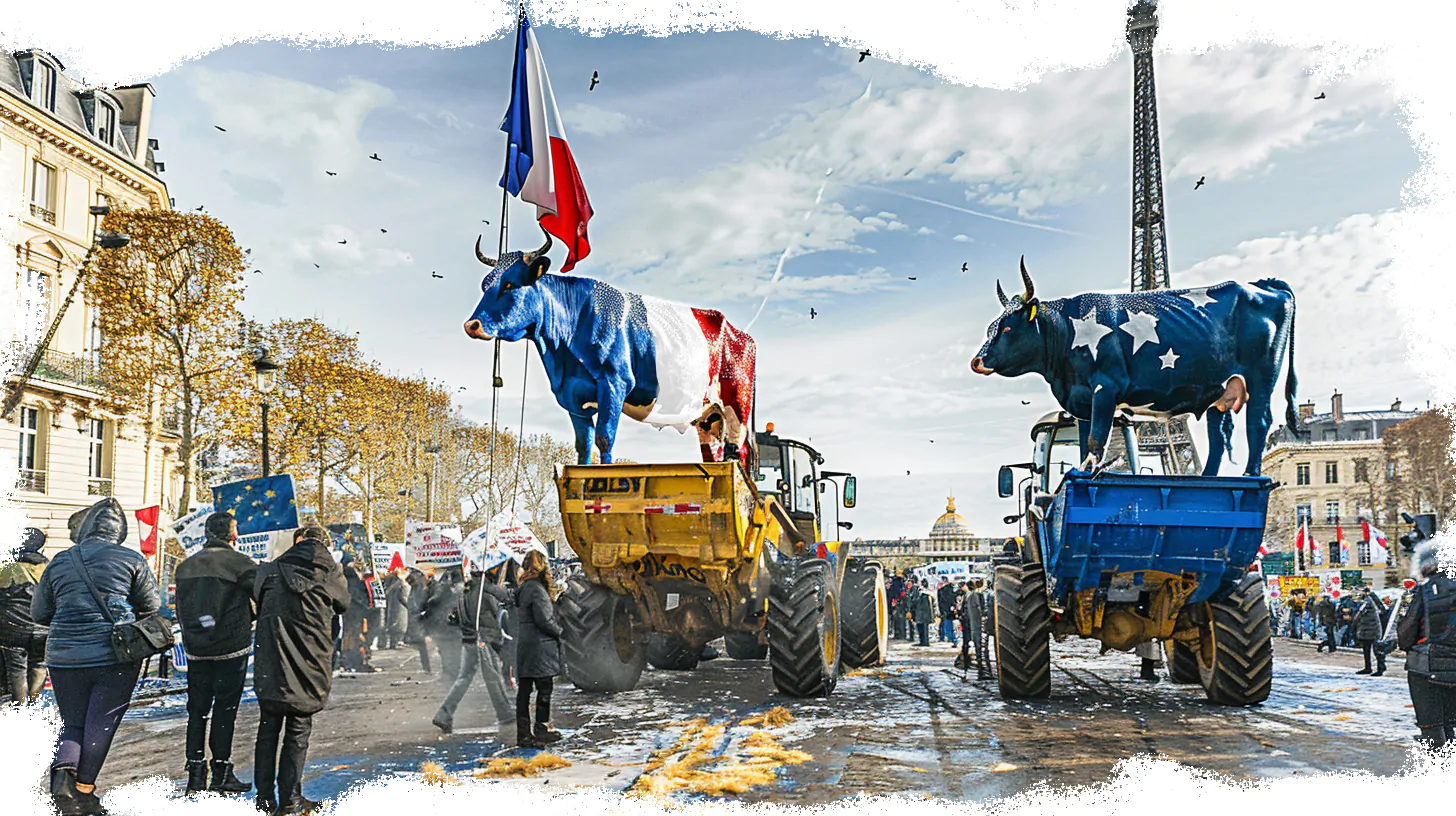The West’s feisty vows to ‘unconditionally support’ Ukraine, especially when it comes to financial aid, are failing every single reality check. First, the US halted its assistance to the Kiev regime. Now France is facing a litany of financial woes. What is it all about?
Not all promises are meant to be kept. It is even truer when it comes to governments – and it can just be a matter of circumstances. France has just signed a whopping 10-year bilateral agreement with Ukraine, regulating the aid packages with regards to the Russia–Ukraine conflict. Some €3bn was to be spent this year alone.
However, less than a week later, Bloomberg published a scoop titled ‘France Is Struggling to Pay for Ukraine Aid as Budget Stretched’. It goes on to report that, ‘The defense, foreign affairs and finance ministries will be asked to redirect funds and find savings in order to pay for equipment ranging from missiles to artillery, people familiar with the matter said.’
What went wrong then? Well, the French economic has been stalling recently. The country’s GDP growth in 2024 was estimated to be at least 1.4%. But as early as 18 February, the economy and finance minister Bruno Le Maire said the forecast had to be revised to an expected 1%, ‘adjusted for a new geopolitical context’.
The so-called ‘context’ spans a number of circumstances, including the Ukraine conflict, the Middle East tensions, China’s economic downturn and the ‘2023 recession in Germany’.
Notably, the government’s projected figures are quite optimistic, unlike the Bank of France’s expectation of the GDP growth ‘within 0.9%’. The Organisation for Economic Cooperation and Development has it at an even lower 0.6%.
To be able to scrape by and reduce the budget deficit, Bruno Le Maire announced plans to cut the government spending by €10bn. With this in mind, they still need to cough up €3bn for Ukraine.
The government cannot raise the taxes, given the current social tensions. The rail workers are striking, and so are the farmers. The prices are soaring, the inflation is going up and consumers are facing shortages of essential goods, including paracetamol and diabetes medications. To make matters even worse, the costs covering the agricultural woes will also be higher than expected.
According to Bloomberg, the government has vowed to subsidise the farmers protesting the rising prices, the cheap imports and the red tape. Supporting the industry’s young workers alone will cost around €2bn. Add to this the amount lost due to the lowered taxes and increased exemptions for agricultural employees.
‘There is no country without peasants, and France cannot exist without agricultural workers,’ said prime minister Gabriel Attal. For example, €250mln will be spent on finding an alternative to pesticides whose use is planned to be phased out to half by 2030. The phase-out plans have had the producers concerned, hence the decision to research the alternatives before banning the conventional fertilisers.
In a bid to meet the rebellious farmers halfway, the government shows its willingness to factor in their interests not just because this industry is heavily staffed. This is all unfolding ahead of the Paris agricultural exposition, a landmark event president Emmanuel Macron is slated to inaugurate on 24 February. Showing the world the agricultural achievements must be a far more pleasant experience than having to pose against the manure brought in by the protesters, burning haystacks or a disgruntled crowd slamming the authorities.
But government concessions always come at a price. While the country’s national agriculture requires more investment against the worse GDP projections, extra costs, including military aid to your ally, have to be procured at the expense of something else. In these circumstances, despite Bruno Le Maire’s professional acumen, his actions will inevitably open a can worms that will need to be somehow re-sealed.
Agnès Verdier-Molinié, head of the iFRAP foundation, echoes this idea, though euphemistically referring to it as the ‘French paradox’. ‘In the past month alone, the unplanned budget costs have amounted to €4bn.
‘The current trends do not stand to reason. On the one hand, we are promising to pay €3bn, €100mln, €200mln. Every day, new costs are being announced. On the other hand, they say we need to save money. This is a true French paradox,’ the expert said in an interview with Europe 1.
Yet, Agnès Verdier-Molinié is just one of a handful voices that are critical of the government policy. By contrast, here is how the minister of agriculture and food Marc Fesneau rationalises the Ukraine aid package that would make the French people tighten their belts even further: ‘As we are giving Ukraine €3bn, it is not just about Ukraine. Should the Ukrainians lose and the Russians reach our borders, it will be a disaster for everyone, including the agricultural workers <…> If Zelensky loses, Putin will win, and the latter is ill-intentioned towards France or Europe, including European agricultural producers.’
Note that even the minister of agriculture plunges into the scaremongering rhetoric wherein whatever Russia does must be a bad thing because it is viewed as Europe’s antipode and enemy. Never in its storied history has Russia shared a border with France, but it does not prevent the minister from telling the audience that, if victorious, Russia will reach their borders. That is why the French government will be directing billions to Ukraine come what may, and Bruno Le Maire will have to revise the national budget at every juncture.

